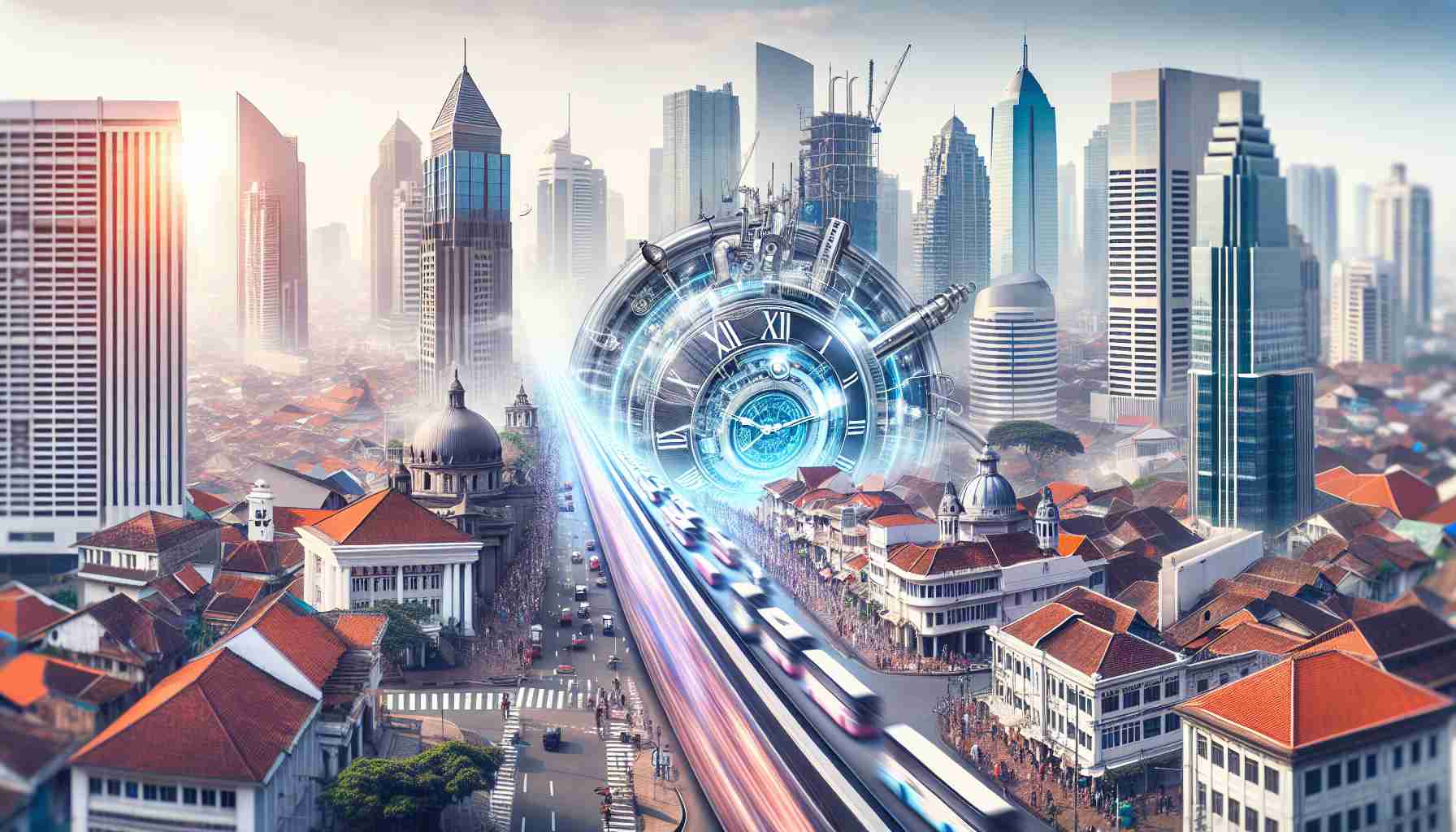- Jakarta is advancing into a digital future by using IoT and smart technologies to revolutionize time synchronization.
- Innovative time synchronization now employs atomic clocks and satellite signals, improving efficiency by coordinating citywide devices like buses, trains, and traffic lights.
- Smart street clocks are being introduced, displaying real-time environmental data and offering personalized alerts through smartphone connectivity.
- AI-powered predictive analytics are being developed to interpret IoT-generated time data for improved city planning and public transport adjustments during rush hours.
- Jakarta is redefining timekeeping to create a smarter and more interconnected urban environment.
In the heart of Indonesia’s capital, Jakarta, time is not just ticking forward; it’s stepping into the digital future. As the world becomes increasingly interconnected through the Internet of Things (IoT) and smart technologies, Jakarta is taking significant strides to revolutionize how we perceive time.
Innovative Time Synchronization is becoming a reality, as smart city initiatives incorporate advanced timekeeping technologies. Utilizing atomic clocks and satellite signals, local time can now be synchronized with unprecedented precision across devices citywide. This means buses, trains, and even traffic lights operate with near-perfect timing, reducing delays and improving efficiency.
The Rise of Smart Clocks has brought a futuristic twist to traditional timekeeping, as Jakarta has begun experimenting with smart street clocks that integrate real-time data. These clocks display not only the current time but also environmental information such as air quality, weather updates, and traffic conditions. They even offer personalized alerts to pedestrians via smartphone connectivity, enhancing daily commute experiences.
Forecasting with Time Data is also on the horizon. Predictive analytics powered by AI are being developed to interpret time data from IoT devices. This means that residents could soon experience a city that preempts their needs—adjusting public transport schedules during rush hours or alerting travelers earlier about potential delays.
Jakarta is not just observing the passage of seconds; it’s harnessing the full potential of each moment, as it redefines timekeeping for a smarter, more connected future.
Jakarta’s Journey Into the Future: How Timekeeping is Redefining City Life
### How is Jakarta Implementing Smart Time Technologies?
Jakarta is embracing cutting-edge time synchronization through the use of IoT and smart technologies as part of its smart city initiative. These initiatives involve using atomic clocks and satellite signals to ensure that local time is precisely synchronized across various devices throughout the city. This innovation facilitates the precise harmonization of public transportation systems like buses and trains, as well as traffic lights, thereby significantly improving the punctuality and efficiency of the city’s transport services.
### What Are the Unique Features of Jakarta’s Smart Clocks?
The city is testing smart street clocks that transform the traditional concept of timekeeping. Unlike conventional clocks, these smart versions integrate real-time data to offer more than just time display. They provide environmental information, including air quality, weather forecasts, and traffic conditions. Furthermore, through smartphone connectivity, these clocks can send personalized alerts to pedestrians, enhancing their commuting experience by offering information tailored to individual travel patterns and preferences.
### How Will Predictive Analytics Influence Jakarta’s Urban Management?
Predictive analytics, powered by artificial intelligence (AI), is being developed to interpret time data collected from IoT devices. This advancement holds the potential to revolutionize urban management in Jakarta. By analyzing time data, the AI systems can predict and react to the city’s demands, such as adjusting public transport schedules efficiently during peak hours. Additionally, residents could benefit from early alerts about potential delays, allowing for more informed travel decisions.
### Additional Insights and Innovations
– **Security Aspects:** One of the security aspects of this system is ensuring real-time synchronization without susceptibility to cyber threats. IoT devices in public infrastructures require robust security protocols to avoid disruptions.
– **Sustainability Considerations:** These smart timekeeping systems are part of Jakarta’s broader efforts to promote sustainability, reducing energy consumption by optimizing the operation of public services.
– **Market Forecasts and Trends:** The global shift towards smart cities is expected to significantly grow the market for IoT devices and smart infrastructures, with Jakarta’s initiatives setting a benchmark for similar urban developments worldwide.
– **Limitations and Challenges:** While the smart timekeeping initiatives offer numerous benefits, challenges such as high implementation costs, technological integration, and maintaining data privacy stand as hurdles that need addressing.
For more information about smart cities and IoT technologies, you might explore sites such as Cisco, a leader in IoT advancements.
